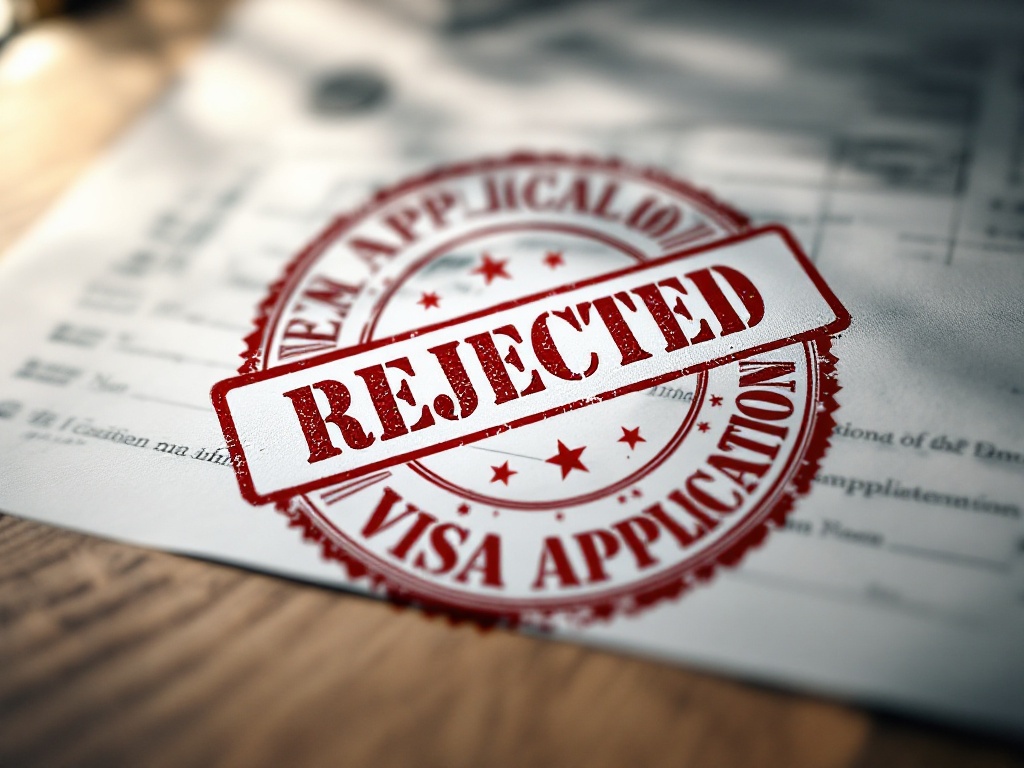What to Do If Your Bahrain Visa Is Rejected
Receiving a visa rejection can be disappointing, but it's important to understand the potential reasons and know what steps you can take next. This guide provides information on handling a Bahrain eVisa rejection.

Understanding the Rejection Notification
If your Bahrain eVisa application is denied, you will typically receive an official notification via email from the Bahraini authorities (or the service provider you used). This notification should ideally state the reason(s) for the rejection.
Key actions upon receiving a rejection notice:
- Read Carefully: Thoroughly read the notification to understand the specific grounds for denial.
- Identify the Issue: Determine the exact problem – was it incorrect information, missing documents, non-compliance with photo requirements, or something else?
- Save the Notification: Keep a copy of the rejection email for your records, especially if you plan to reapply or inquire further.
Review the reason for denial carefully.
Avoid common application pitfalls.
Common Reasons for Visa Rejection
Visa applications can be rejected for various reasons, including:
- Incorrect or Incomplete Information: Errors, typos, or missing details in the application form.
- Non-Compliant Documents: Passport not meeting validity requirements, unclear scans, or photos not adhering to specifications. See requirements.
- Missing Supporting Documents: Failure to provide required documents like flight bookings, hotel reservations, or invitation letters.
- Eligibility Issues: Traveler not satisfying the fundamental eligibility criteria for the chosen visa type or based on nationality.
- Security Concerns: Applicant flagged due to security checks or past immigration violations.
- Insufficient Funds: Inability to demonstrate sufficient financial means for the trip (if requested).
- Previous Overstay: Having previously overstayed a visa in Bahrain.
Options After Rejection
If your application is rejected, you generally have a few potential courses of action:
- Review and Correct: Carefully analyze the reason for rejection provided in the notification. If it was due to correctable errors (e.g., typo, wrong document format), fix the issues.
- Reapply: Once the issues identified in the rejection notice have been addressed, you can usually submit a new eVisa application. You will likely need to pay the application fee again.
- Appeal (If Applicable): Some visa systems offer an appeal process, although this might be more common for traditional visas than eVisas. Check the rejection notice or official NPRA guidelines for information on appeals. Appeals often have strict deadlines and procedures.
- Apply for a Different Visa Type: If rejected for a specific eVisa type, consider if you qualify for a different category or a traditional visa obtained through an embassy/consulate.
- Contact Authorities: If the reason for rejection is unclear, you can try contacting the NPRA or the relevant Bahraini embassy/consulate for clarification, though responses may vary.
Remember: As mentioned on the Visa Fees page, application fees are typically non-refundable, even after a rejection.
Explore your options after denial.
Review Application StepsTips to Minimize Rejection Risk
- Thoroughly read all instructions and requirements before starting.
- Double-check all information entered in the application form for accuracy and consistency with your passport.
- Ensure all uploaded documents (passport scan, photo) are clear, legible, and meet the specified format and size requirements.
- Apply for the correct visa type that matches your purpose of travel.
- Be honest and transparent in your application.
- Apply well in advance to allow time for potential corrections if needed.
While rejection is possible, careful preparation significantly increases your chances of approval.
If you have further questions, consult the FAQ page or contact support.
